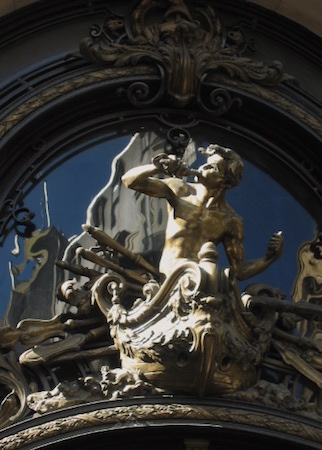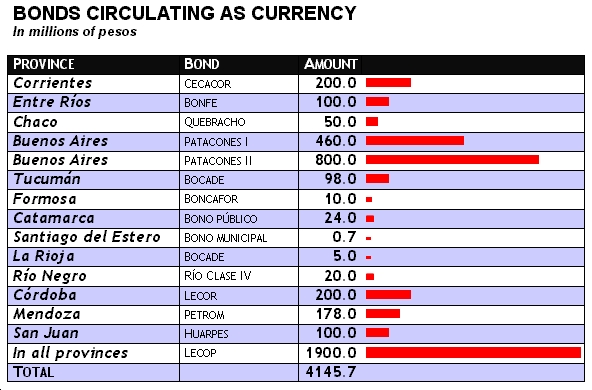
There has been a lull in big stories during the past month, but many smaller events to track. In spite of the economic and political crisis (or precisely because of it), the 4-day holiday during Holy Week saw a huge increase in local tourism as almost the entire city of Buenos Aires left on vacation. Many stayed in Argentina to keep costs down, & it was bizarre to see so few people in town.
The following Monday was an additional day off for most, being the official remembrance of the 20th anniversary of the Falklands War. Although a big media event, few paid much attention. The following photos were taken at the war memorial in Plaza San Martín that Monday as a family asked a priest to say a prayer for a fallen relative.

Former Economic Minister Domingo Cavallo resurfaced in the news once again but this time to go to jail. That’s right. For his knowledge of illegal arms sales to Croatia and Ecuador in the 1990s, he was unexpectedly sent to prison. The news media loved that… there were broadcasts from Cavallo’s compound of him dining on a multi-course meal with wine, dressed in his finest casual attire. And this is punishment?! These are the same charges for which former President Menem was jailed then set free five months later. Cavallo won’t be in prison for long. He had another court appearance within the last month along with former President De La Rúa. De La Rúa accused various members of the Peronist PJ party of a plot to remove him from office. Instead of making general statements as he had in the past, De La Rúa gave names this time and was fully backed by Cavallo. I doubt this will lead anywhere, but it’s an interesting story to follow. Former President Saá also announced his plans to run for election next year. Maybe he will resign again too.
The economy continues in a downward spiral with the IMF being, according to Argentine politicians, excessively demanding. Negotiations have come & gone with few positive signs. One of the main conditions the IMF wants is the retrieval & conversion to pesos of all bonds printed in the last year by various provinces. As you can see from the chart below, there are over $4 billion in various bonds circulating alongside the peso without any backup from the Argentine treasury. In fact, you can scarcely find a peso outside of Buenos Aires. I translated this graph from the newspaper Clarín a few months ago, so the current total could be much higher:

Finally, more problems with the corralito. Only 5% of Supreme Court cases against the corralito have been favorable, but a large number of banks have had to part with their cash reserves. So much cash that Economic Minister Remes Lenicov has been desperate to find a way to eliminate the corralito for good. Precisely for those reasons, ScotiaBank Quilmes (a division of the fourth largest bank in Canada) was ordered by the treasury to suspend operations for 30 days due to a lack of liquidity. What does that mean? Employees will be most likely laid off, customers will not have access to their funds & a potential loss of everything if the bank does not reopen.
Many are afraid other banks will follow suit. On 19 April 2002, a bank holiday was announced for an indeterminate amount of time. This caused a massive extraction of money with long lines at ATMs. I doubt that of all ATMs in town that you could find a single one with cash. This is reminiscent of times before the big protests in Dec 2001. Buenos Aires has been relatively calm even with numerous bus and train strikes, but many disturbances have occurred elsewhere. In San Juan province, a group of provincial employees took over the legislative building to protest not receiving their paychecks. Maybe it’s the calm before the storm here in Buenos Aires.

[Originally posted in Argentina Experienced, a website I created to document living in Buenos Aires after the 2001 economic crisis. Text has been edited for style. Definitions of econ terms can be found in the glossary. Politician biographies may help, as well as a summary of recent history & current events.]